Wine Logos: Design Ideas, Inspiration & How to Make Your Own
Explore stunning wine logos, design styles, and top trends. Get inspired by famous wine logos or create your own with wine logo generators and free templates.
Explore stunning wine logos, design styles, and top trends. Get inspired by famous wine logos or create your own with wine logo generators and free templates.
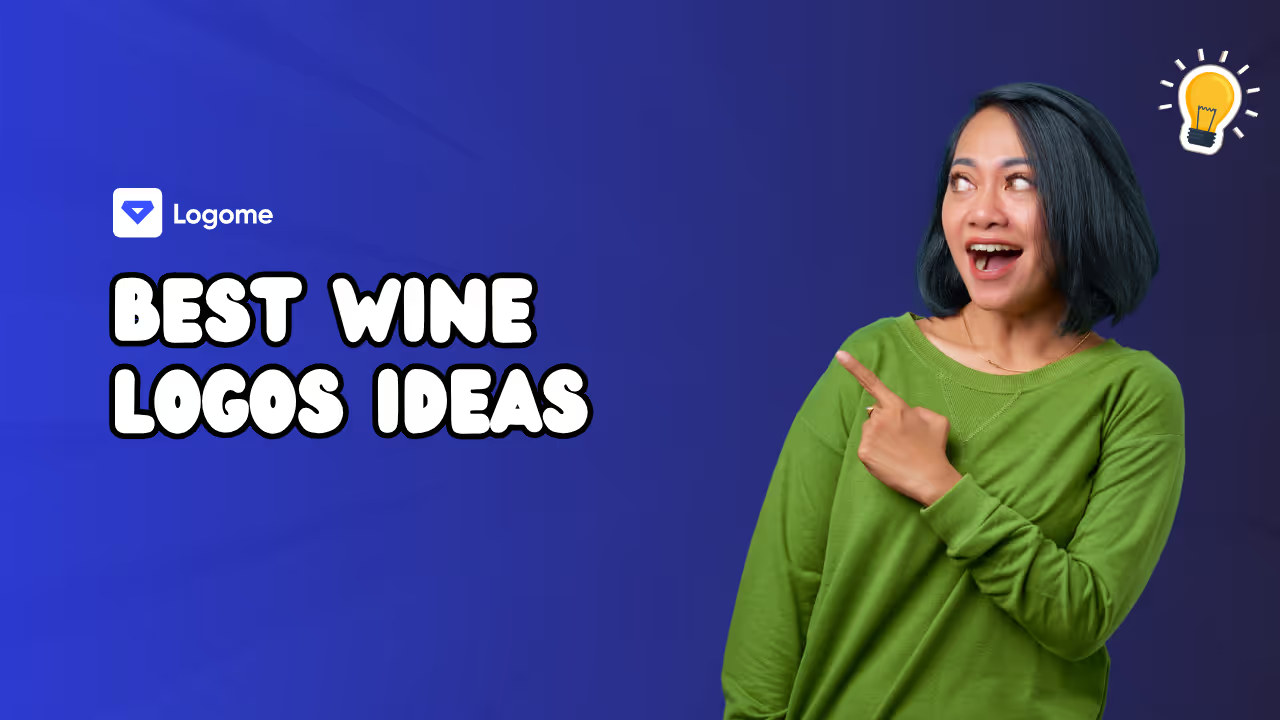
Ever notice how the best wine logos feel like they belong on the bottle—even before you’ve tasted what’s inside? Whether you run a family vineyard, a luxury wine brand, or a fresh online label, your logo is your brand’s first impression. It can tell a story, spark curiosity, and build trust—all in a single glance.
In this guide, you’ll find everything you need to create a wine logo that feels uniquely yours. From design inspiration and popular styles to free tools and logo templates, this is your one-stop resource to get it done—elegantly, effectively, and effortlessly.
A wine logo is more than just a label. It’s the visual identity of your vineyard, bottle, or brand. A well-designed wine logo tells your story, builds recognition, and helps you stand out in a saturated market. Whether you're designing for a luxury brand or a boutique vineyard, these key factors define an effective logo.
Your wine logo should mirror your brand’s personality. If your vineyard focuses on heritage and tradition, the design should feel rustic or classic. If you're a bold, urban winery, a minimalist or edgy logo may work better.
Ask yourself—what feeling should your logo give? Refined? Earthy? Youthful? Let your logo translate that emotion into a visual.
Good wine logo design strikes a balance. Simplicity keeps it clean and versatile. Sophistication adds detail and elegance. Avoid clutter. Focus on one strong visual message. A clutter-free design also works better across labels, websites, and merchandise.
Minimalism works especially well in modern winery logos. Sophisticated designs often shine in luxury wine brand logos.
Logo Fonts can shape how your wine is perceived. Serif fonts signal tradition and trust. Script fonts add a handcrafted, elegant touch. Sans-serif fonts feel modern and clean.
Pick a typeface that pairs well with your wine logos and names. It should be legible and scalable, whether on a bottle or a digital ad.
Wine is rich with visual storytelling. Common symbols include:
These symbols connect with customers instantly. Just keep it unique—your design should stand out even with familiar elements.
Wine logo trends evolve, but some design styles stay timeless. Here are the most effective styles to inspire your winery logo ideas—whether you want something minimalist, vintage, or wildly creative.
Minimalism is powerful. These logos use clean lines, simple icons, and a lot of negative space. They're perfect for digital use and scale beautifully on labels.
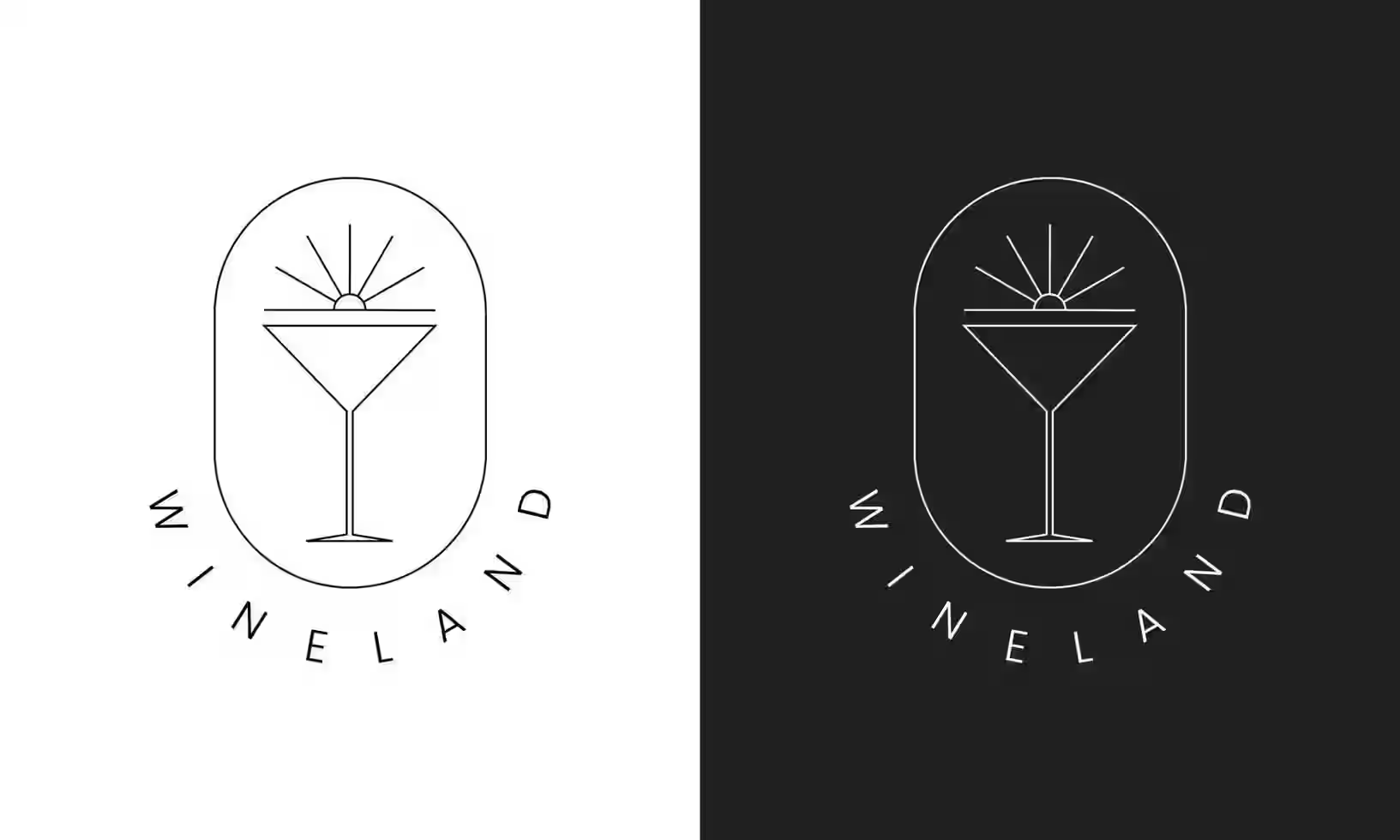
Minimalist wine logo design templates are especially popular with modern wine startups and urban wineries looking for a sleek look.
Vintage wine logos often include intricate details, serif fonts, and muted colors. They’re ideal for brands rooted in tradition or long-standing vineyards.
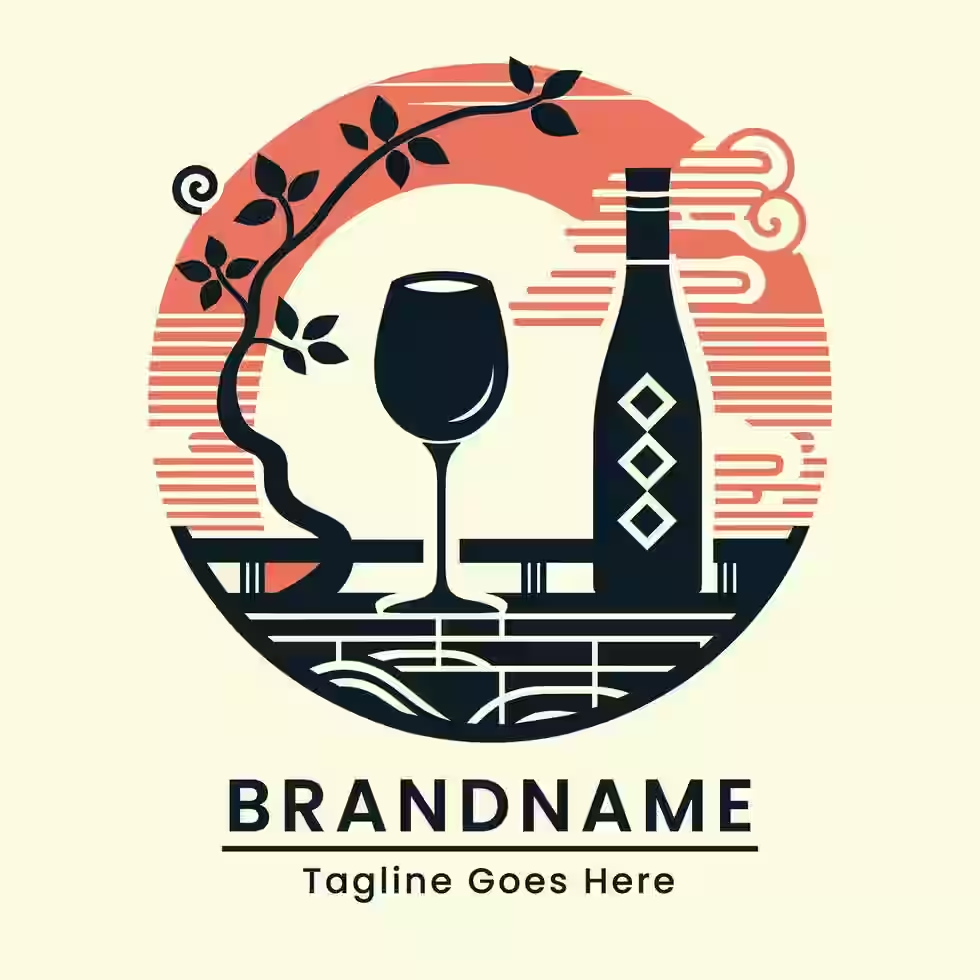
You’ll often see emblem-style layouts with elements like wax seals, shields, or scrolls. These designs suggest age, craftsmanship, and legacy.
Want to break from tradition? Modern, playful logos work well for newer brands targeting younger audiences. Think bold colors, unexpected shapes, and custom illustrations.
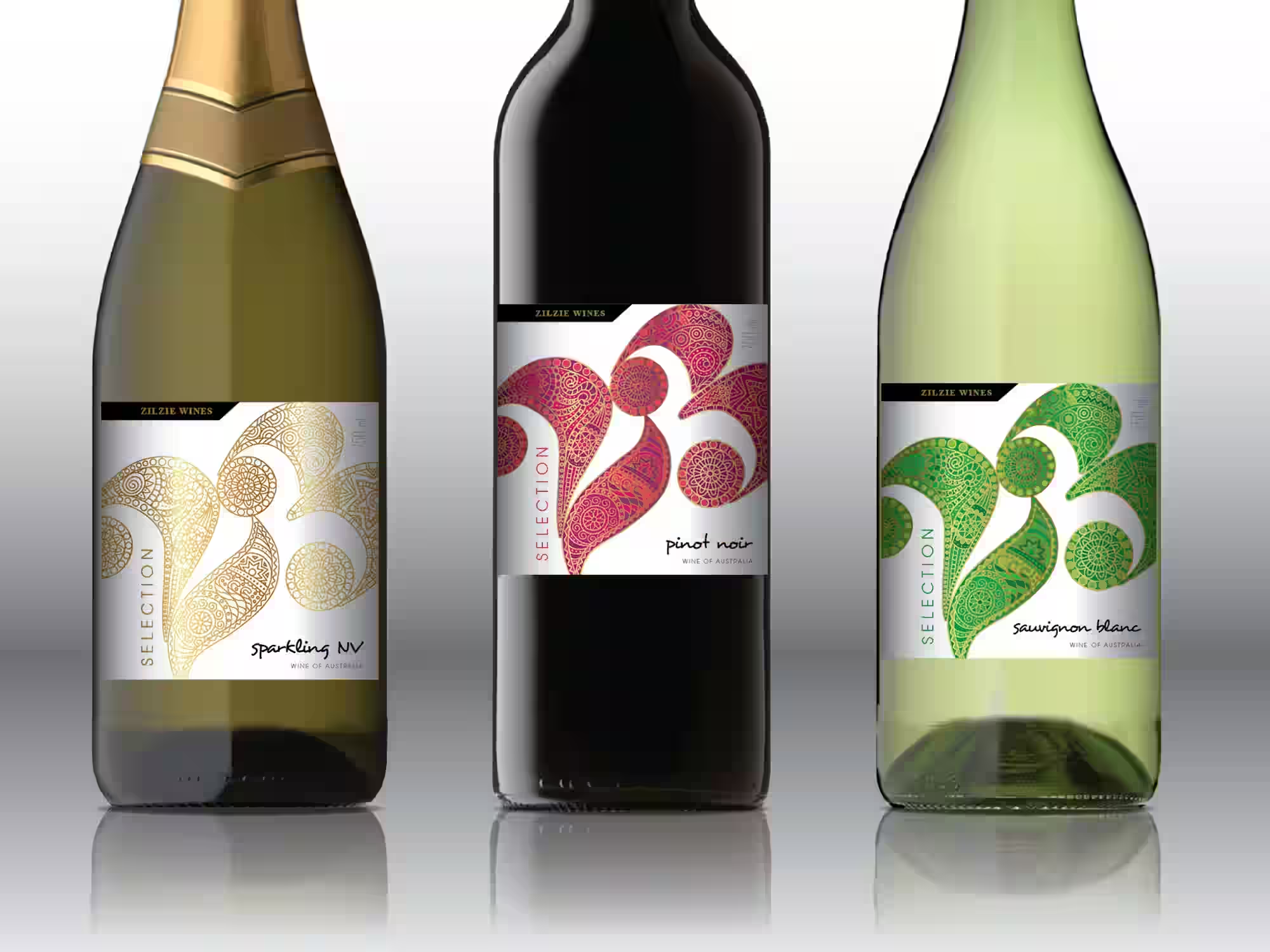
These are often used by canned wine brands or eco-friendly labels trying to shake up the market.
Animals add charm and memorability. Foxes, owls, deer, and birds are popular picks. Some represent the vineyard’s ecosystem, others the brand’s character.
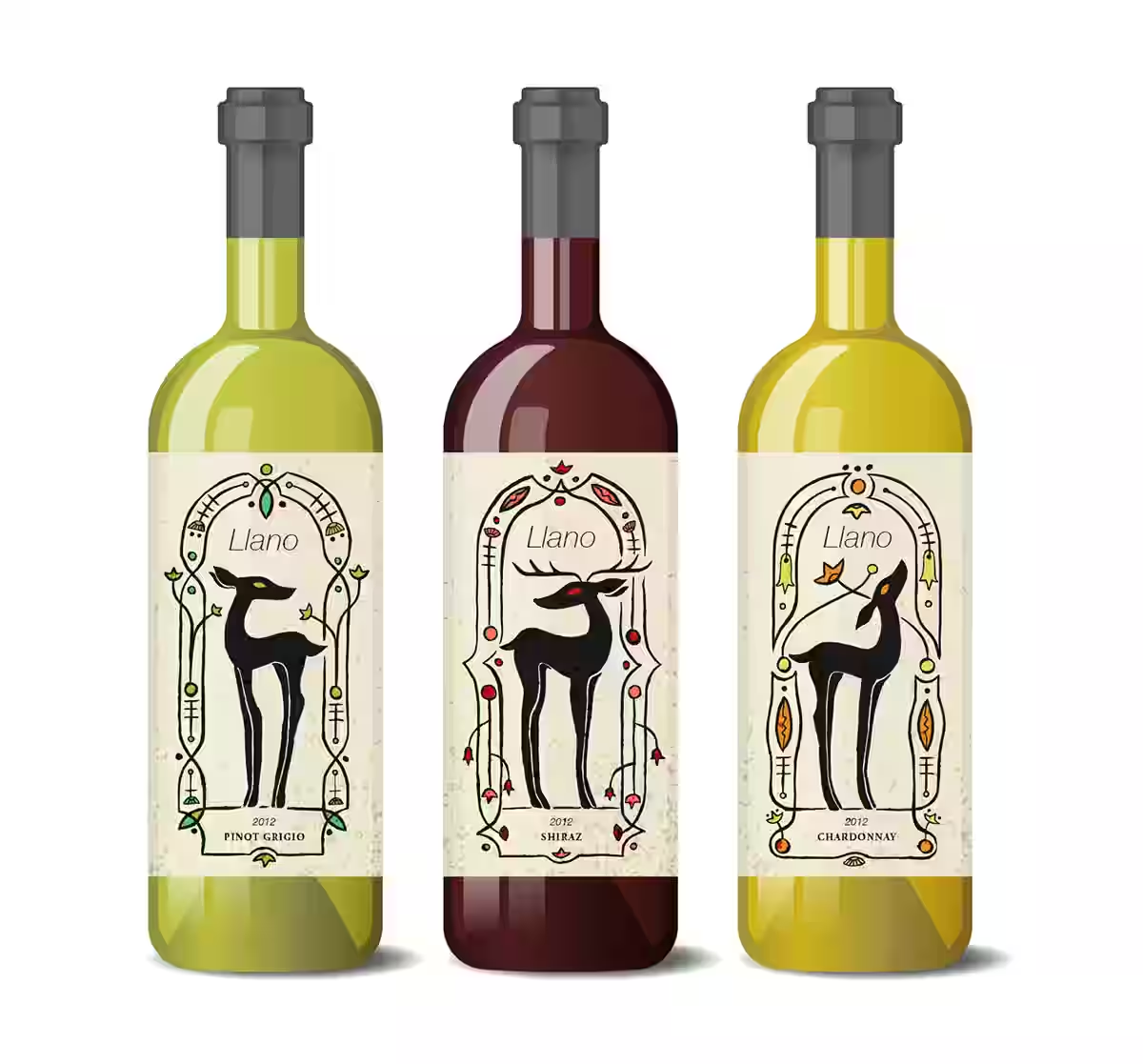
This style often appears in famous wine logos and helps brands create emotional connection through symbolism.
Botanical elements like vines, leaves, and flowers hint at the origin and natural beauty of wine. They're especially popular in organic, biodynamic, or rosé-focused brands.
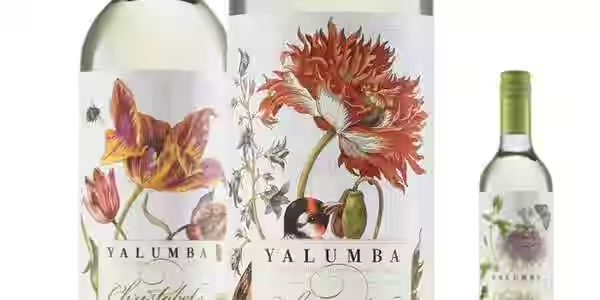
This style pairs beautifully with handwritten fonts and watercolor effects in your wine logos images.
Monogram logos use initials to create a timeless brand mark. These are clean, elegant, and easy to remember. Signature logos mimic handwritten styles, adding a personal, artisanal feel.
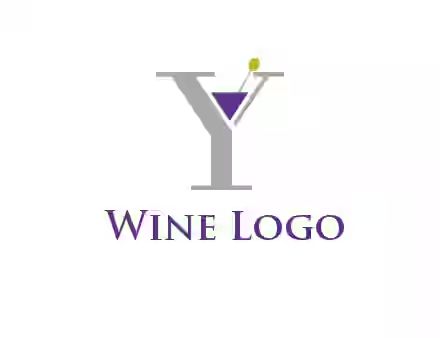
They work well for boutique vineyards and premium labels that want a luxury vibe without overcomplication.
Emblems and crests give an old-world, aristocratic feel. They’re structured, often circular or shield-shaped, and rich with traditional symbolism.
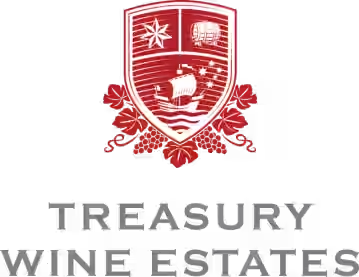
These are commonly seen in luxury wine brand logos, especially those with European or royal heritage.
Every type of wine has a unique personality—and your logo should reflect that. From bold reds to bubbly champagnes, each variety opens new creative possibilities for logo design. Let’s explore how wine logos and names can visually connect to the product they represent.
Red wine branding often leans into deep, rich colors—burgundy, maroon, black. Logos usually have traditional fonts and earthy textures. A serif typeface, grapevine motifs, or even a bold monogram works well.
Red wine logos tend to focus on legacy and depth. Use strong, structured visuals to express richness, aging, and sophistication.
White wines are light, crisp, and refreshing. Their logos often reflect this with softer colors like pale green, gold, or silver. Modern, minimalist designs with clean lines and open space tend to work best.
Many modern winery logos for white wine brands prefer sans-serif fonts and icons like chilled glasses, vineyards, or sun-kissed leaves.
Rosé is youthful, trendy, and fun. These wine logos usually feature pink hues, playful icons, and softer typography. Think watercolor textures, floral elements, and curved lettering.
If your wine targets a younger or lifestyle-driven audience, this is where you can get a little more creative and less formal.
Bubbly wines deserve elegant branding. Champagne and sparkling wine logos often look luxurious with gold accents, cursive fonts, and emblem shapes.
Visuals like fizzing bubbles, crystal glasses, or stylized crowns make a logo feel upscale. These fall under the category of luxury wine brand logos, especially for events and gift sets.
Natural wine logos focus on sustainability, earthiness, and authenticity. Designs often use botanical illustrations, muted tones, and hand-drawn elements.
These logos connect emotionally by highlighting transparency, eco-values, and artisan craftsmanship. Ideal for vineyard branding that wants to stay close to nature.
Looking at famous wine logos is a great way to spark ideas. These brands have mastered the art of visual storytelling. Let’s take a look at some iconic names and what makes their logos stand out.
This French champagne house uses a timeless serif logo paired with a gold star. The design oozes heritage and royalty. It feels instantly premium and ceremonial.
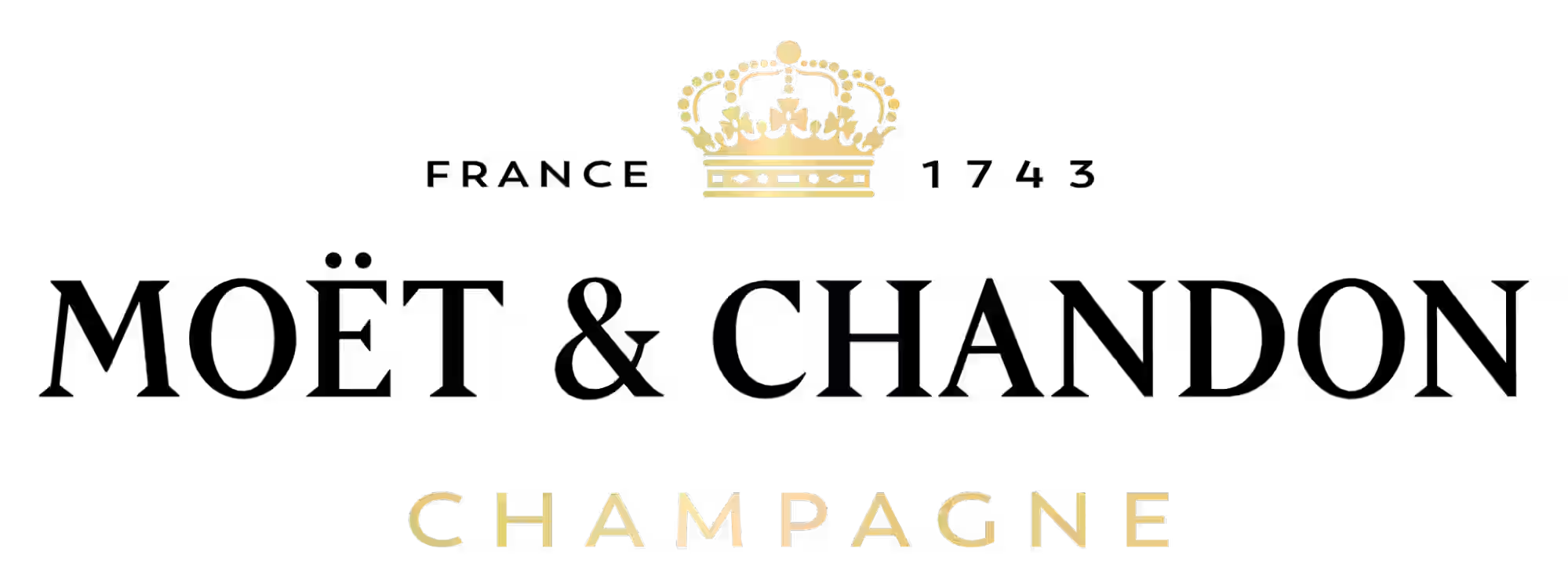
Robert Mondavi’s logo features an arched bridge—a symbol of the winery’s connection to California's Napa Valley. It blends elegance with a sense of place, using serif fonts and neutral colors.
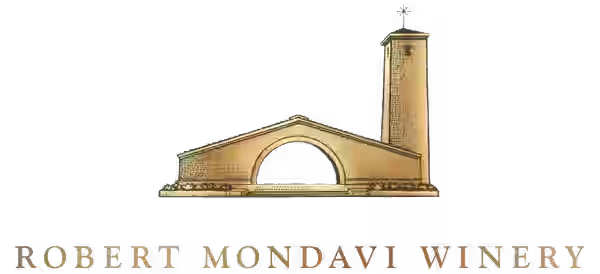
Château Margaux sticks to classic branding. Their logo includes a detailed illustration of the estate, giving it an exclusive and historic feel. It’s a staple in luxury wine brand logos.
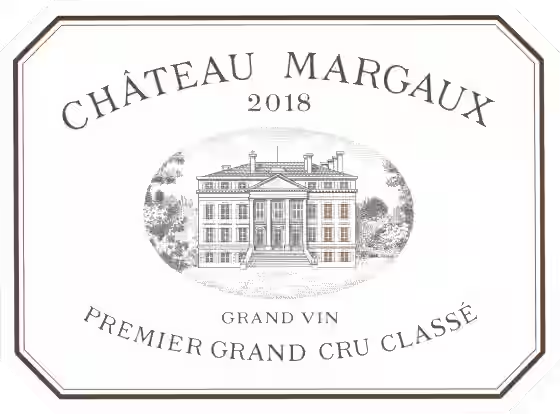
Edgy and rebellious, the 19 Crimes logo features vintage type and moody colors. It aligns with the brand’s storytelling focus—every bottle shares a true convict tale. The design is gritty, raw, and bold.
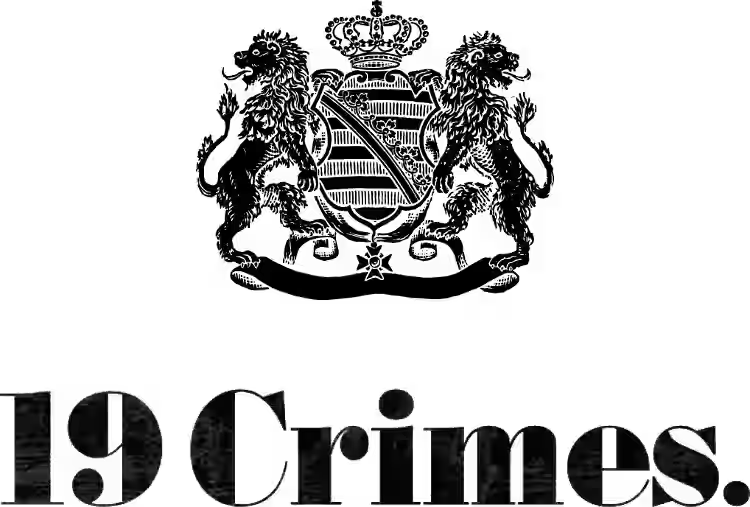
Barefoot’s logo is fun and casual. The footprint mark makes it instantly recognizable. It appeals to casual drinkers and works well for both digital and physical branding.
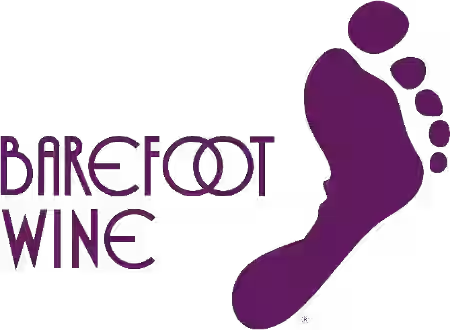
This premium brand uses a bold eagle icon in black and white. The design is elegant, mysterious, and exclusive—matching its limited releases and high-end pricing.
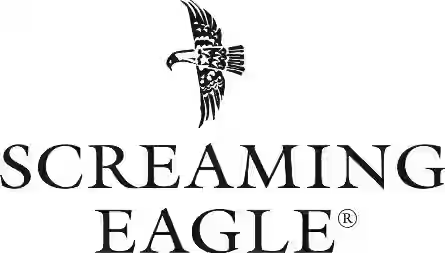
Bright, bold, and playful, Yellow Tail’s logo includes a stylized kangaroo. It’s simple but extremely memorable—great for global recognition.
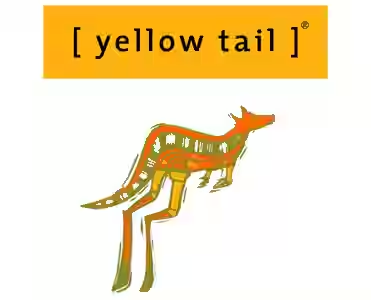
Duckhorn uses a detailed duck illustration to reflect the vineyard’s name. The classic serif font and earthy tones give it a refined, heritage look.
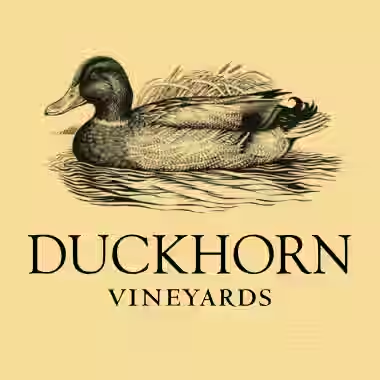
La Marca’s logo features a crisp, modern serif wordmark on a soft blue background. It feels light, celebratory, and accessible—ideal for prosecco branding.
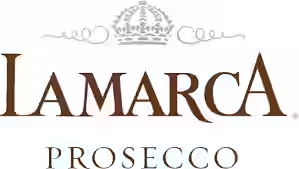
This iconic champagne house combines monogram styling with ornate typography. It’s luxurious, royal, and instantly sophisticated. A prime example of how to master the art of wine logo design for upscale markets.
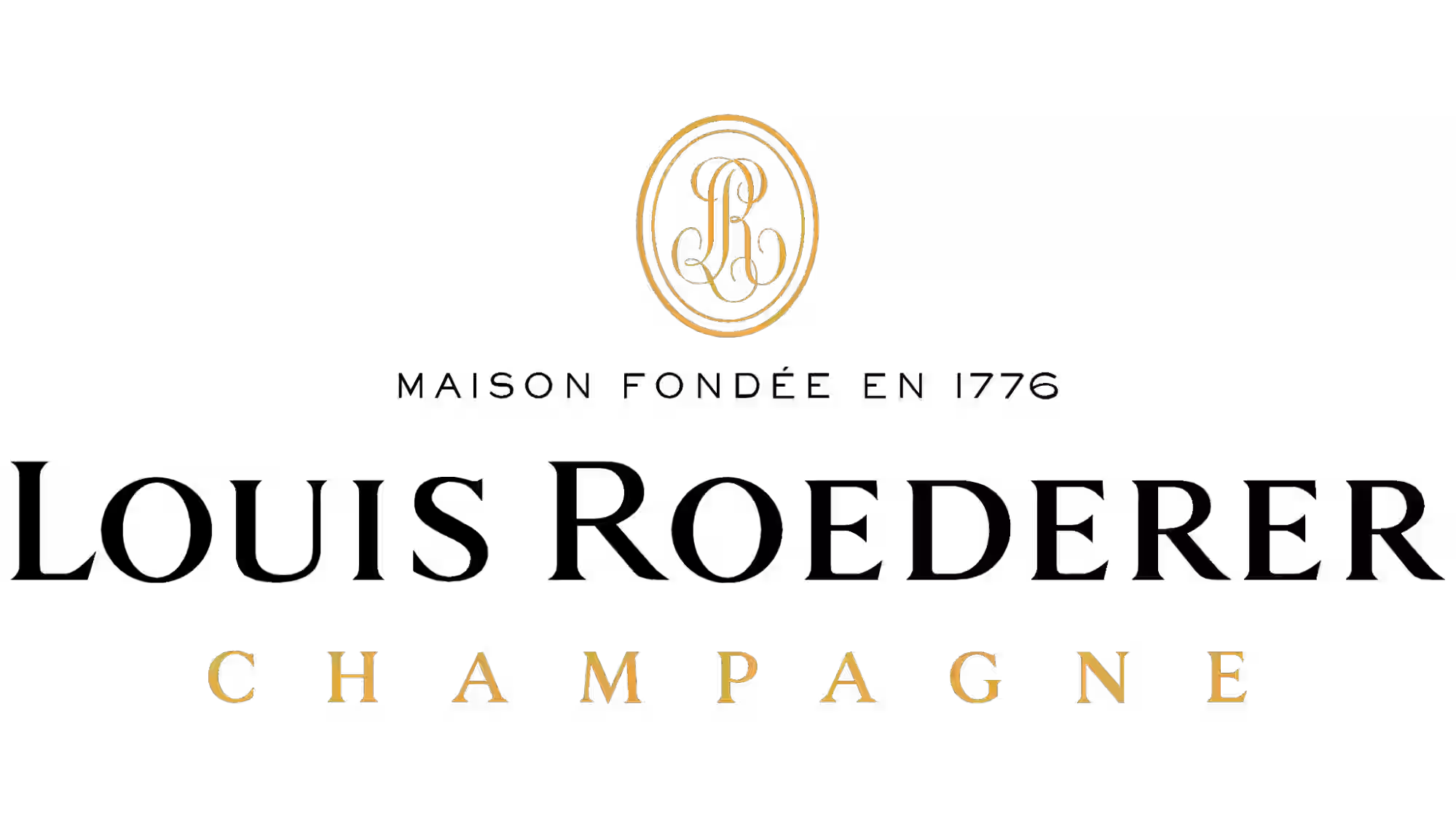
Designing wine logos doesn’t have to be overwhelming. Whether you're starting a new brand or refreshing an old one, the right approach can make your logo memorable and meaningful. This section walks you through five essential tips that apply to both beginners and design pros. It’s your step-by-step guide to crafting a wine logo that truly speaks for your bottle.
Start by understanding your brand’s tone. Is it rustic and traditional? Sleek and modern? Youthful and fun? Your logo style should mirror that personality.
Vintage wine brands often lean toward emblems, serif fonts, and detailed illustrations. Modern winery logos usually embrace minimalist lines and sans-serif fonts. For luxury wine brand logos, elegance and symmetry are key.
Your style defines the first impression. Make it count.
Colors in wine logo design are more than decoration. They create mood, perception, and brand recognition.
Stick to 2–3 core colors. Avoid using too many, as it makes printing harder and dilutes the brand’s look.
Fonts help shape your logo’s voice. A logo with an unclear or trendy font might look nice today but become hard to read or outdated later.
Keep spacing balanced and size legible, especially for wine labels where space is limited.
Wine bottles have limited space. Your logo must work in small sizes—on corks, neck tags, or printed labels.
Avoid clutter. Stick with one icon, one font, and enough breathing room. A crowded logo looks blurry or confusing when scaled down.
Try printing it in black and white or reducing it to 1 inch. If it’s still readable, you’re on the right track.
Your logo should feel personal. It needs to align with your vineyard’s story and values.
If your vineyard is family-run, show that heritage. If you use organic methods, add natural elements. Your design should reflect what makes your wine different.
Think of wine logos and names like a signature. The best ones feel real, not just trendy. Use symbols, fonts, and colors that represent your roots.
You don’t need to be a professional designer to create stunning wine logos. With the right tools and resources, anyone can craft a polished, brand-ready logo—without spending a fortune. Let’s explore some of the most useful platforms and assets available online to help bring your winery logo ideas to life.
Logo generators are a great starting point if you want quick results with little to no design experience. These tools let you create wine logos online using ready-made elements, symbols, and fonts tailored to your industry.
These tools offer plenty of customization and are ideal for small wine brands or new vineyards.
Want more control over the design? Wine logo design templates give you editable files you can tweak in design tools like Adobe Illustrator, Figma, or Canva Pro.
Templates save time and ensure your wine logos and names look polished across packaging and marketing materials.
If you're on a budget, several platforms provide wine logos free to edit and download. These tools allow limited customization but are perfect for testing concepts or temporary use.
Always double-check licensing for commercial use before finalizing your logo.
Visual inspiration plays a big role in branding. Exploring wine logos images can help you identify styles that resonate with your brand.
Use these platforms to gather ideas or share visuals with your designer.
Wine branding continues to evolve—and so do logos. As consumer preferences shift toward authenticity, sustainability, and minimalism, logo design follows suit. Here are the top wine logo trends in 2025 to keep your brand relevant and compelling.
Natural colors, raw textures, and eco-friendly visuals are gaining ground. Think of vines, soil patterns, leaves, and hand-drawn grape clusters.
This aligns especially well with organic wine branding and eco-conscious consumers.
Custom illustrations and handwritten fonts add a personal, artisanal feel. They suggest small-batch production and handmade quality—perfect for boutique vineyards and family-run wineries.
These fonts work well with wine logos and names focused on storytelling.
Logos now reflect values, not just aesthetics. Expect more logos to show sustainability through:
This is a strong match for modern and organic wine logos that want to stand out ethically as well as visually.
Modern consumers love clean, clutter-free visuals. Logos that use negative space cleverly or rely on abstract shapes are trending across modern winery logos.
These designs look premium on everything from corks to shipping boxes.
A wine logo isn't just a pretty icon. It's the face of your brand, the first thing customers connect with—on shelves, on screens, or at events. If you want your brand to stick, your logo needs more than aesthetics. It should evoke feelings, create trust, and remain recognizable across every channel.
Let’s look at how your wine logo can truly leave a lasting impression.
People often choose wine based on how the label makes them feel. Is it elegant? Earthy? Playful? That gut reaction matters.
A good wine logo design taps into emotion. A scripted font can suggest romance or luxury. An illustrated vineyard may feel nostalgic and handcrafted. A modern icon can hint at innovation or sustainability.
Your logo sets the tone. It should resonate with your audience emotionally, not just visually.
Your wine logo must stay consistent wherever it appears. Whether it's on corks, bottles, boxes, digital ads, or social media, it should be instantly recognizable.
Keep color codes, spacing, and iconography the same across your branding. This builds trust and makes your brand look professional.
Many famous wine logos succeed simply because they’re consistently used, from the bottle to the billboard.
Whether you're selling locally or shipping worldwide, your logo must stand out online too. A great wine logo looks sharp on:
Use high-resolution wine logos images and export your logo in various formats—PNG, SVG, and PDF—to keep it crisp everywhere.
Your wine logo should tell a story, evoke emotion, and stay memorable for years—just like your finest vintage. Whether you're launching a boutique label or rebranding a legacy vineyard, investing in a thoughtful logo pays off across every touchpoint.
Ready to design one that stands out? Try Logome—an intuitive logo maker that helps you create stunning wine logos in minutes. From modern to classic styles, Logome offers the flexibility and ease every winery needs to build a lasting brand. Start designing and pour your brand’s essence into every curve and color.
Moët & Chandon is one of the most famous wine and champagne brands globally, known for luxury and heritage. Other top names include Robert Mondavi, Château Margaux, and Barefoot Wine.
A wine label typically includes the brand name, grape variety, region, vintage, and alcohol content. Logos, symbols, or crests help recognize the brand at a glance.
The German wine quality seal is a golden or black eagle emblem (the "Deutscher Wein" logo) indicating the wine meets official German wine classification standards.
You can create a wine logo using tools like Logome, Canva, or Looka. Choose a style, color palette, and icon that reflect your brand’s identity, then customize it to match your vision.
Canva is a popular app for making wine labels, offering drag-and-drop templates. Alternatives include Adobe Express and Avery Design & Print.
Yes, the wine business can be profitable with the right branding, quality, and distribution. Global wine revenue is projected to exceed $500 billion in the coming years, showing steady growth.

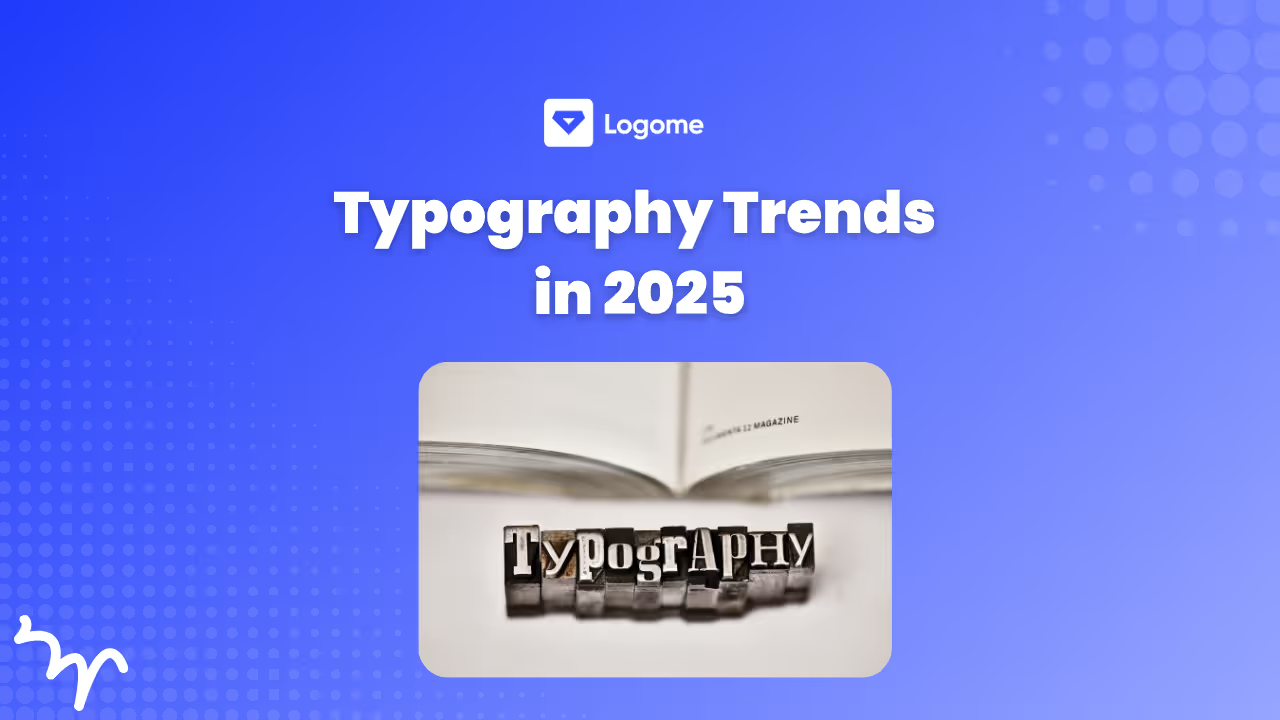

Discover how 500,000+ businesses and creators are using our AI logo maker in their Logo creation.



